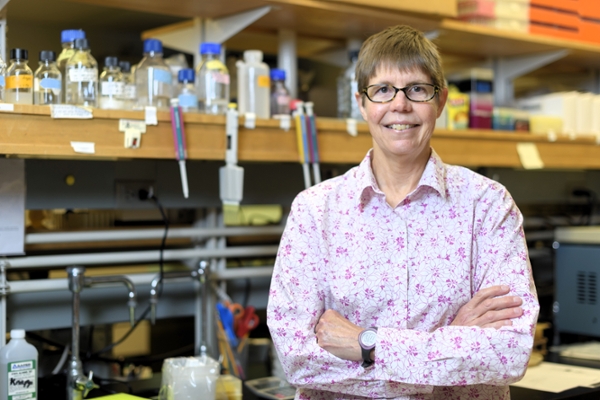
News
Read the latest news and updates here from the Werling Comparative Oncology Research Center.
Bladder Cancer Screening
The WCORC has specific emphasis areas in cancer research, including one in urinary bladder cancer. Urothelial carcinoma, or "TCC" (short for transitional cell carcinoma), has been heavily researched by veterinary oncologist and Director of the WCORC, Dr. Debbie Knapp. She has spent decades of her career making giant leaps in survival times and treatment methods for dogs with bladder cancer.
Although more common in canines, the WCORC offers services for both dogs and cats with TCC, such as cystoscopic biopsy for diagnosis, diagnostic imaging evaluation, and treatment options. In addition, Dr. Knapp and her team offer clinical trials for canine patients that qualify with this type of cancer.
Beginning in 2024, Dr. Knapp and her team will be hosting bladder screenings that will help dogs that are considered high-risk for bladder cancer. Ultrasound is a useful diagnostic tool for bladder cancer patients. It has helped Dr. Knapp determine specific treatment regimens for her patients and is used routinely to check the status of their disease. Ultrasound can also be used to help detect bladder cancer early and can be used as a preventative measure in these high risk breeds.
Learn more about the ultrasound screening

WCORC Expands with Three New Faculty Members Committed to Advancing Cancer Treatments for Animals
In 2024, the Werling Comparative Oncology Research Center (WCORC) welcomed three esteemed new faculty members to its ranks, strengthening its mission to provide cutting-edge cancer treatment and research for animals. These additions bring diverse expertise and an unwavering dedication to discovering improved therapies for animals affected by cancer.
The new hires include specialists with backgrounds in veterinary oncology, translational medicine, and clinical research, each bringing unique insights and skill sets to the Center's already robust team. Their joint efforts are expected to enhance Purdue's ongoing initiatives in cancer research, offering new possibilities for diagnosing, treating, and even preventing various forms of cancer in animals.
Dr. Marejka Shaevitz, a specialist in veterinary oncology with a focus on precision medicine, will be spearheading research projects aimed at tailoring treatments to the specific needs of each patient. Dr. Shawna Klahn, an expert in translational medicine, will focus on goals aimed at expediting the translation of discovery into tangible, marketable advances for the management of cancer in both humans and companion animals. Finally, Dr. Nick Dervisis, with extensive experience in clinical trials, will be leading initiatives to bring experimental treatments from lab to clinic, giving pets access to the latest advancements in cancer therapy.
The WCORC has long been a leader in the field, not only treating animals with compassion but also contributing valuable insights for human cancer research. By expanding its faculty, the Center reaffirms its commitment to excellence in veterinary oncology, promising hope to pets and pet owners alike who are affected by this devastating disease.

